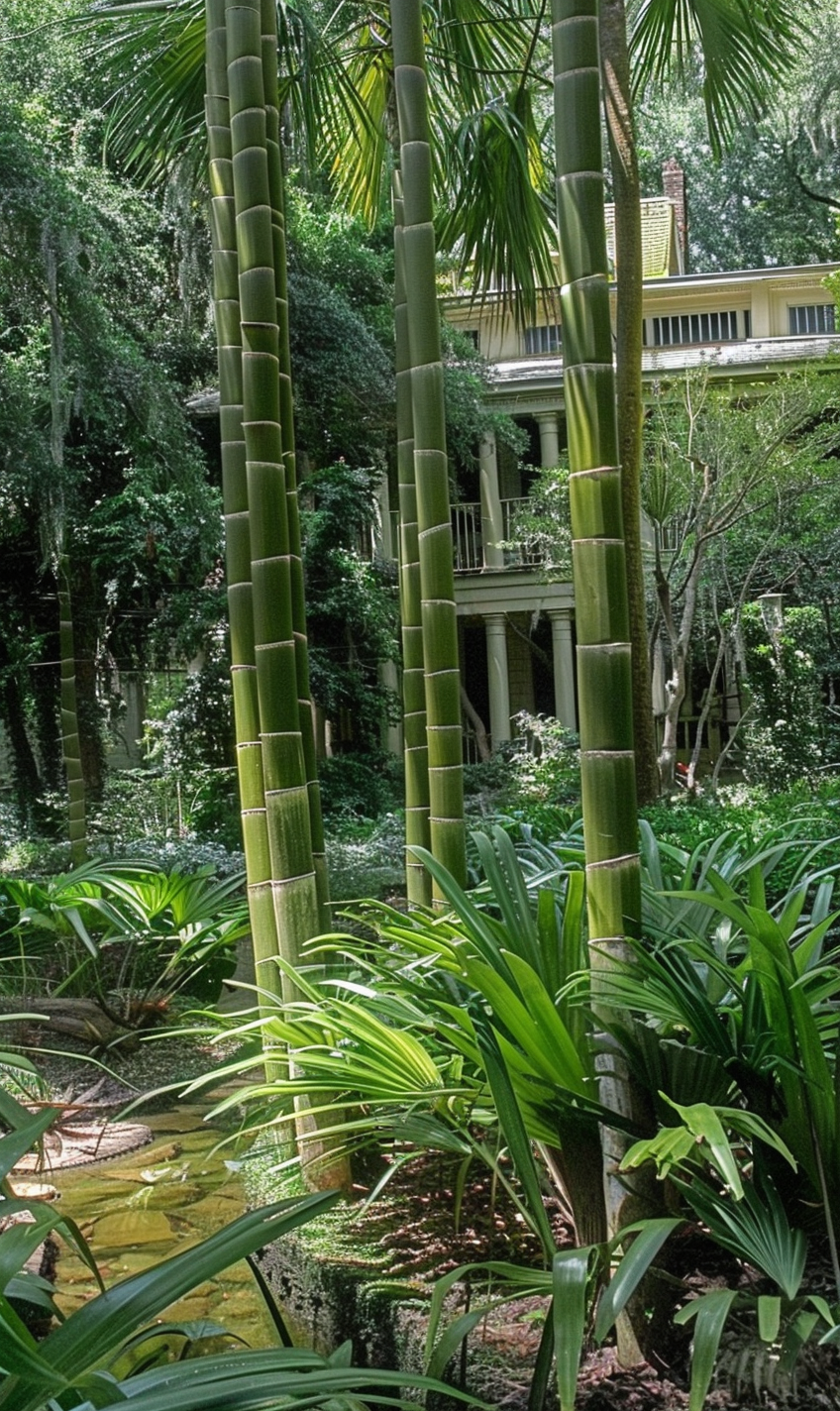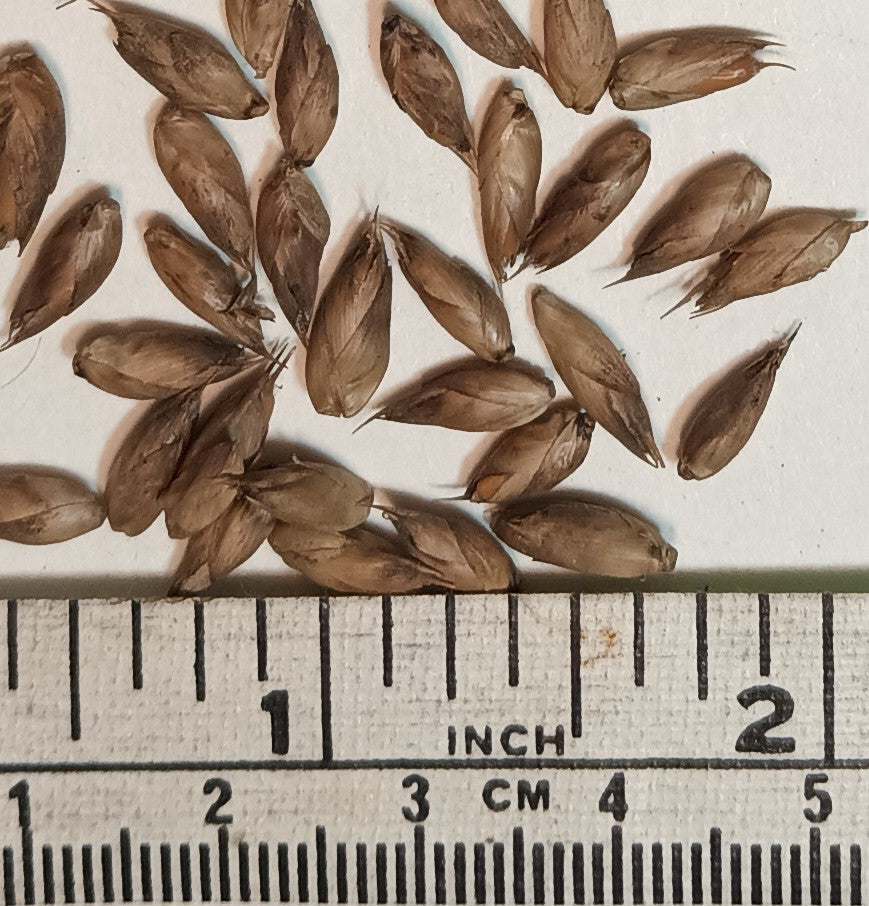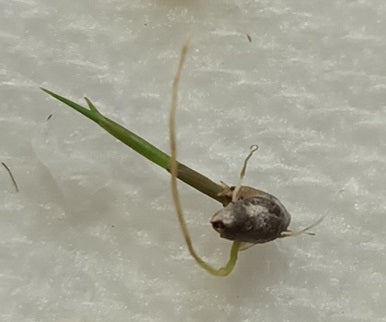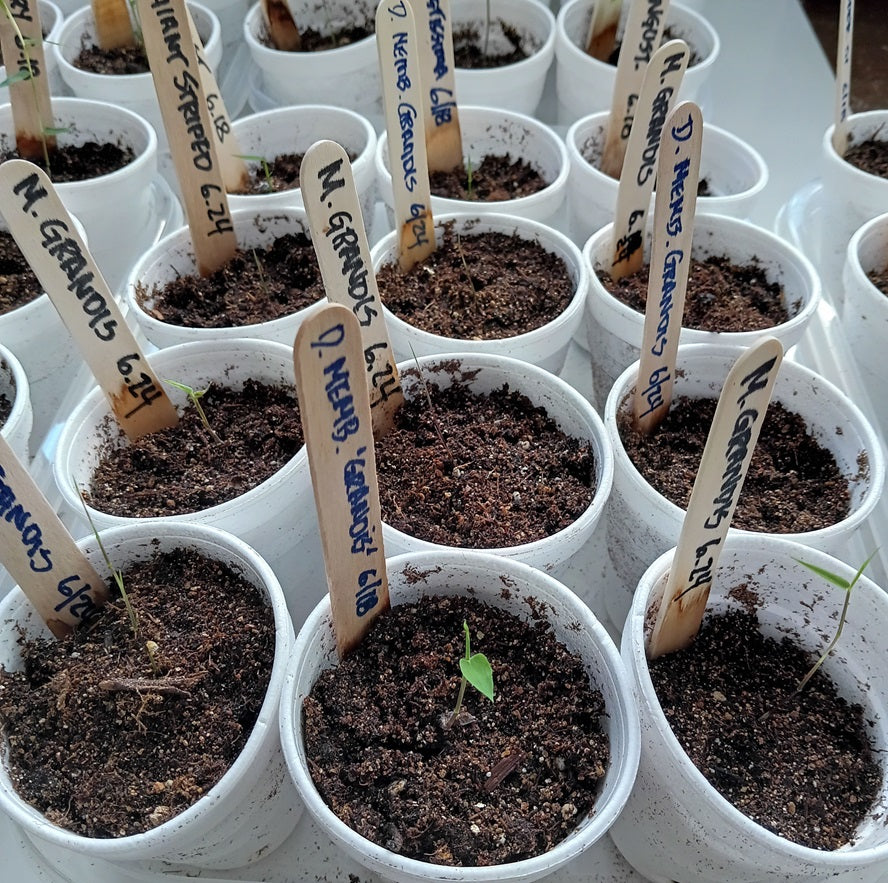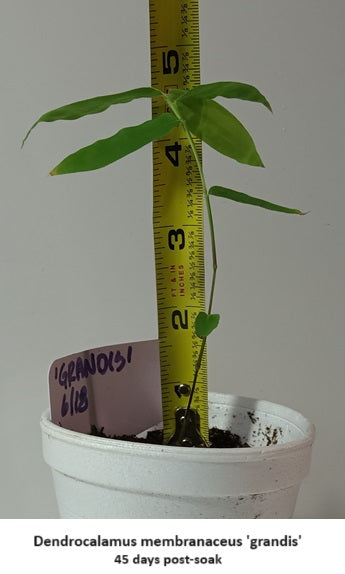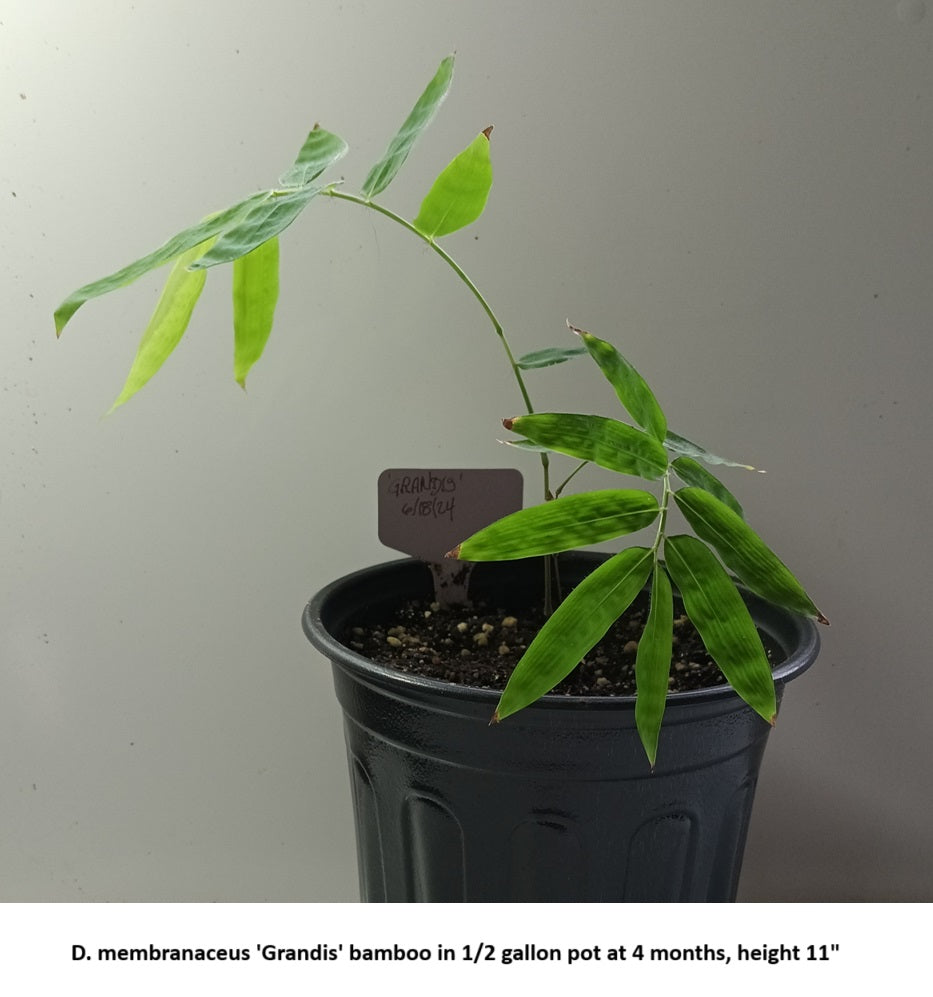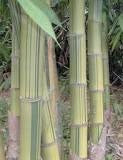The Bamboo Seed
Giant Bamboo Seeds - Dendrocalamus membranaceus 'Grandis' bamboo seeds
Giant Bamboo Seeds - Dendrocalamus membranaceus 'Grandis' bamboo seeds
Couldn't load pickup availability
Giant Bamboo Seeds - Dendrocalamus membranaceus 'Grandis' bamboo seeds for sale
- Quantity 30+ Dendrocalamus membranaceus 'Grandis' bamboo seeds
- USA Hardiness Zone: 9a-12; in colder zones if winterized
- Giant bamboo seeds
- Clumping bamboo seeds
- Cold hardy to 20°F / -6.7°C
- Height 35'-50'
- Avg. days to first germination: 6-11
- When to Germinate: Any time
-
How to Germinate
Giant Bamboo Dendrocalamus membranaceus 'Grandis', also known as Huang zhu bamboo, is a fast growing and larger subspecies of Dendrocalamus membranaceus. A tall, attractive bamboo with small leaves. Easy growing in moisture-retentive soil with full sun. Shoots are edible. The culms are commonly used for construction. Increasingly popular as one of the fastest growing bamboo boundary fences and hedges.
Dendrocalamus Bamboo Seeds
Dendrocalamus membranaceus grandis is a species of bamboo that belongs to the genus Dendrocalamus, which is a large group of tropical and subtropical bamboos. This bamboo is native to Southeast Asia, specifically found in countries like Thailand, Malaysia, Myanmar, and Indonesia.
Appearance: Similar in appearance to Waya Bamboo, this species is a large and robust bamboo species that can reach impressive heights. It typically grows up to 30 meters (98 feet) tall, with a diameter of around 15 centimeters (6 inches). The culms (stems) are straight, erect, and have a slightly swollen base. A taller bamboo than Dendrocalamus membranaceus.
Culm Color: The culms of Dendrocalamus membranaceus grandis have a greenish-yellow hue when young, which gradually matures to a pale yellow or straw color as they age.
Culm Sheaths: Culms are covered with overlapping sheaths. These sheaths are initially green and become yellowish-brown as they age. They are thin and papery, often leaving a distinctive pattern of scars on the culms when shed.
Leaves: The leaves of are lanceolate (lance-shaped) and have a bright green color. They are arranged alternately along the branches and are relatively large in size compared to other bamboo species.
Growth Habit: Dendrocalamus membranaceus is a clump-forming bamboo, meaning it tends to grow in dense clumps rather than spreading via rhizomes like running bamboo species. The clumps can expand over time as new culms emerge from the ground near the parent plant.
Habitat and Climate: Thrives in tropical and subtropical regions with warm and humid climates. Cold hardy to 20F/-4C. It prefers well-drained soil and can tolerate a range of altitudes. It is commonly found in lowland areas, hills, and mountains.
Uses: Dendrocalamus membranaceus 'Grandis' has numerous practical uses. The culms can be harvested and utilized in construction, furniture making, handicrafts, and various other applications. Its strong and durable wood-like properties make it a valuable resource for building materials. Additionally, the young shoots of Dendrocalamus membranaceus are edible and are used as a food source in certain regions.
Growth Rate: Like other bamboo species, this bamboo is known for its rapid growth rate. Under favorable conditions, it can grow several centimeters per day, making it a highly renewable resource. Like other Dendrocalamus bamboo seeds, we've found that the 'grandis' variety of bamboo seeds germinate rather quickly, with first signs of seed germination within 7-10 days of the initial seed soak.
Cultivation: Dendrocalamus membranaceus can be propagated through seeds or by dividing established clumps. It requires a warm and moist environment for successful growth. Proper spacing should be maintained to allow sufficient sunlight and airflow between clumps. Regular watering and fertilization may be necessary for optimal growth.
Ecological Importance: Bamboo, including Dendrocalamus membranaceus grandis, plays a vital role in the ecosystems it inhabits. It helps prevent soil erosion, provides habitat for various organisms, and contributes to carbon sequestration, thus mitigating climate change.
It's important to note that while the similar bamboo Dendrocalamus membranaceus is commonly referred to as Waya Bamboo, regional variations such as Dendrocalamus membranaceus 'Grandis' and their common names may exist depending on the specific locality.
About Giant Bamboo
Giant bamboo is highly valued for its ecological importance. It plays a crucial role in the environment by providing habitat and food for a wide range of wildlife, including birds, mammals, insects, and amphibians. The dense foliage and extensive root system of giant bamboo also help prevent soil erosion and stabilize slopes, making it an important plant for soil conservation. Giant bamboo such as D. membranaceus are a valuable source of timber and other products, with culms that are used for construction, furniture, handicrafts, and a variety of other purposes. The different types of Giant bamboo when grown from seed produce a remarkable and versatile species that plays a significant role in the ecosystem and is highly valued for its ecological and economic importance.
Benefits of Selecting Clumping Bamboo Seeds
Planting non-invasive bamboo plants in the garden offers numerous benefits. Non invasive bamboo species are characterized by their clumping growth habit, which means they spread slowly and stay contained within their designated area. This makes them an excellent choice for landscaping and garden design, as they can be used to create privacy screens, windbreaks, or to add visual interest and texture to borders or large containers, with minimal containment effort.
Non-running bamboo plants procreated from seed are highly adaptable and can thrive in a variety of soil types and climates, from tropical to temperate regions. This makes them suitable for a wide range of garden styles and settings. Fast growing Bamboo seeds produce bamboo known for rapid growth, with some species capable of growing several feet in just a few weeks, providing a quick and effective way to create a lush and green landscape. Mature Bamboo plants are also beneficial for the environment, as they absorb carbon dioxide and release oxygen, help prevent soil erosion, and provide habitat and food for wildlife.
Planting non-invasive bamboo plants in the garden offers numerous benefits for gardeners and the environment alike, making them an excellent choice for sustainable landscaping and garden design.
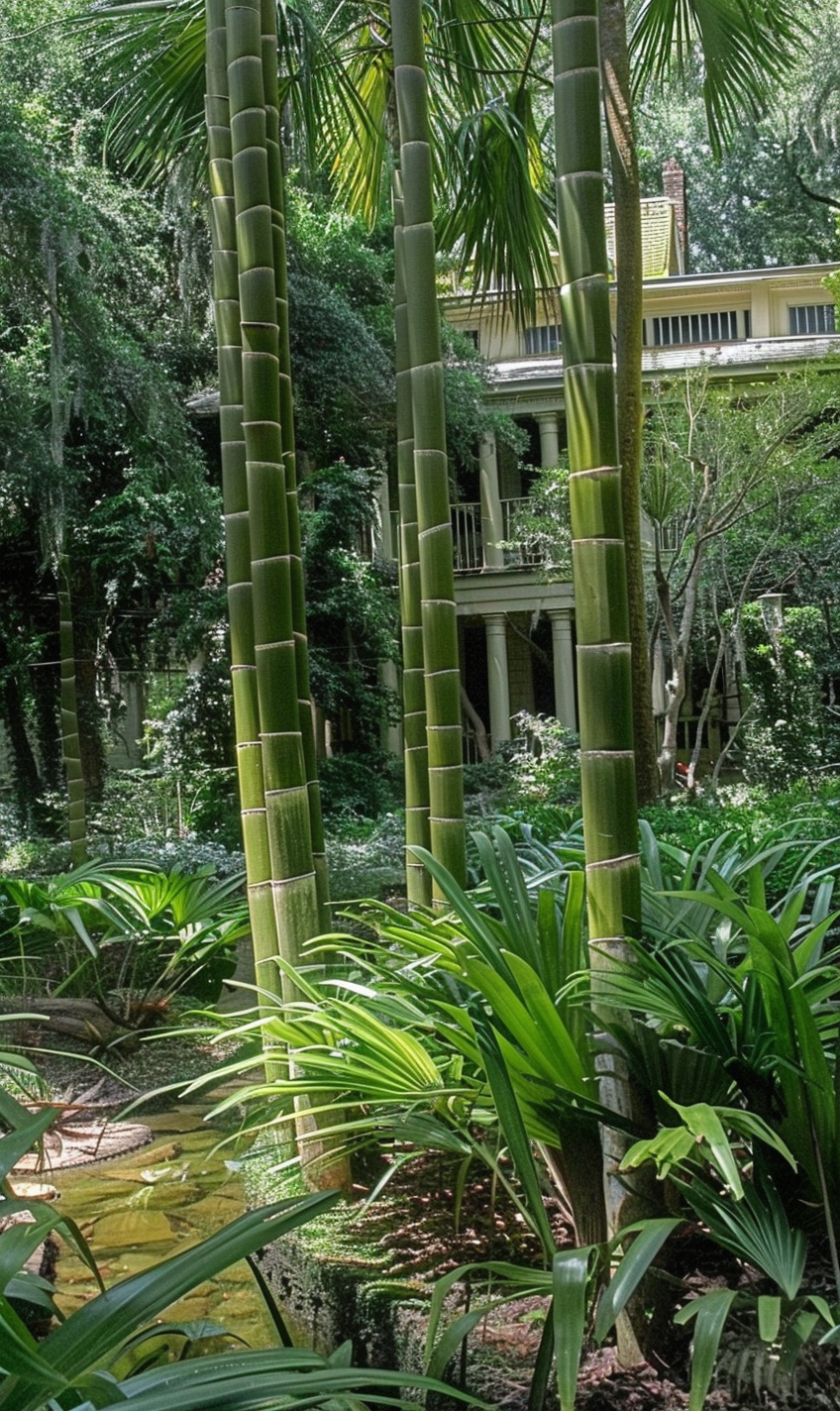
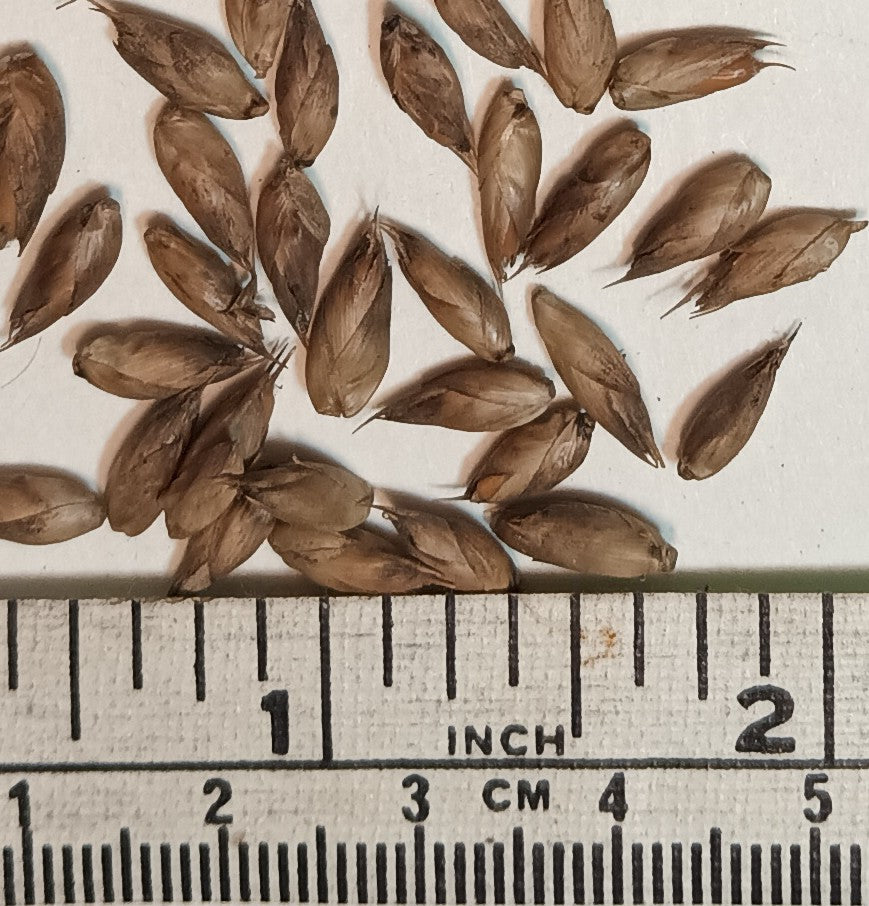
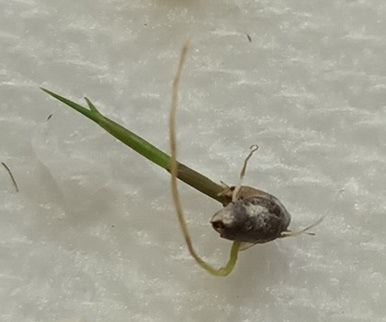
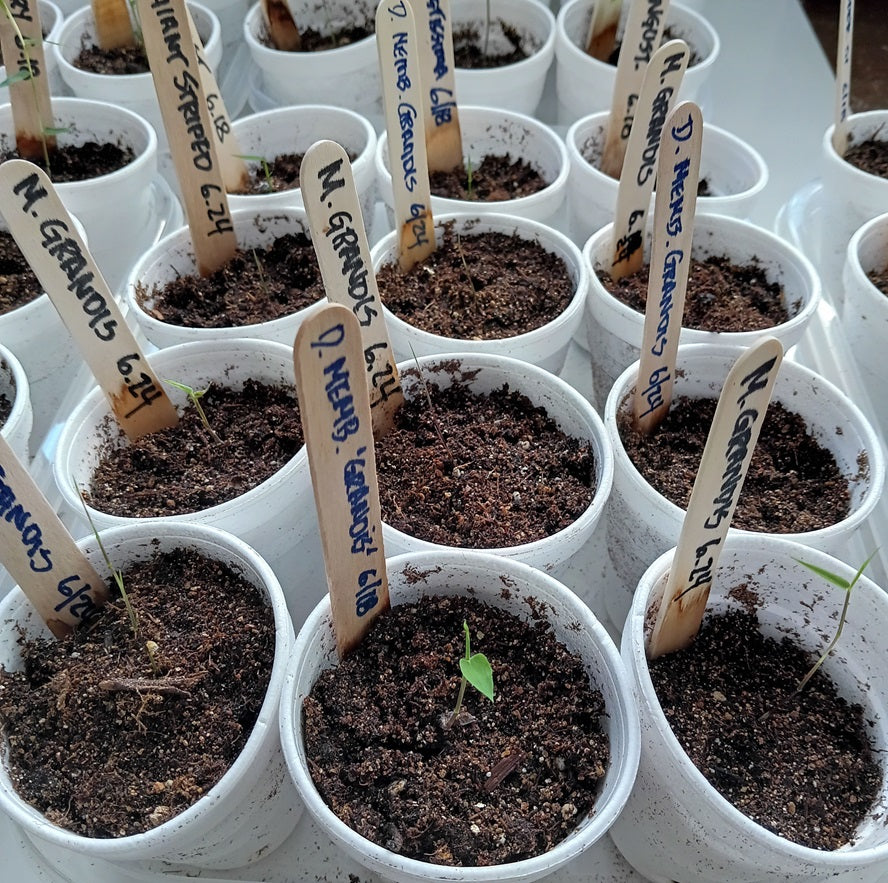
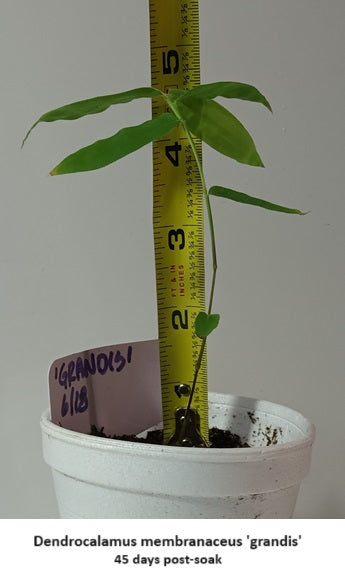
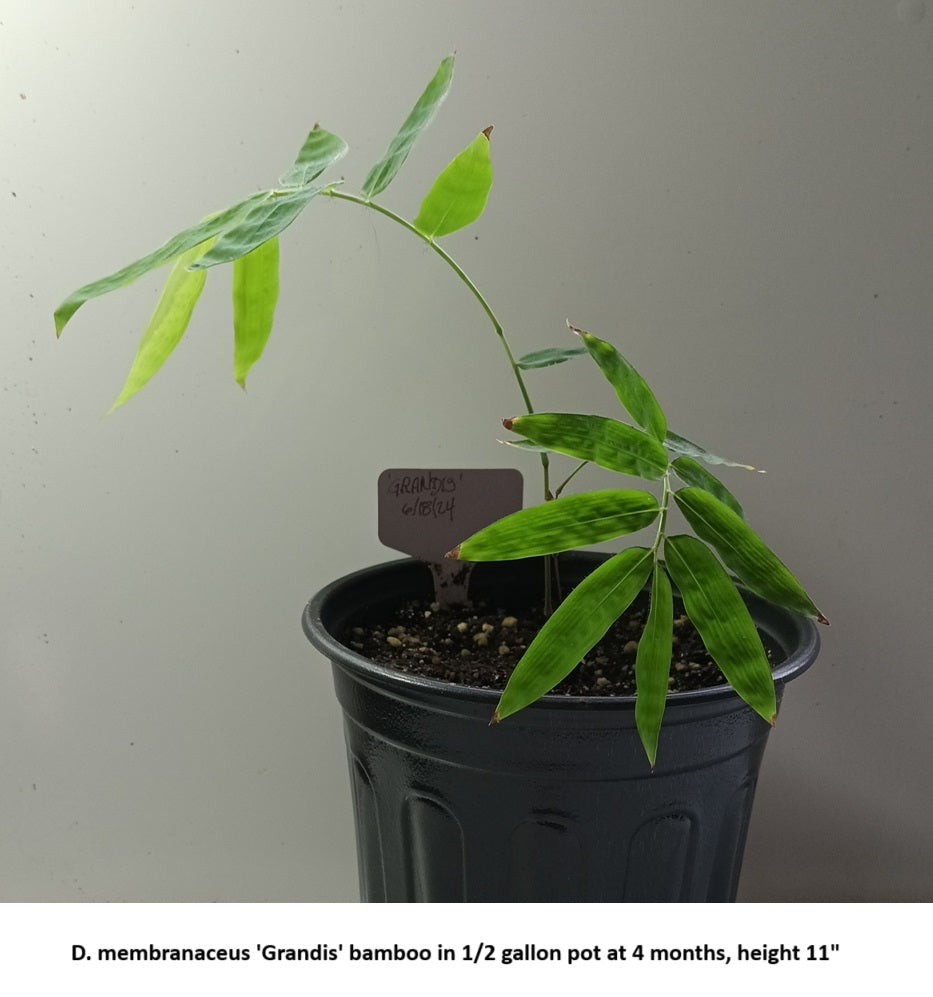
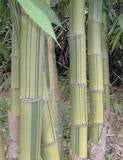
Collections
-
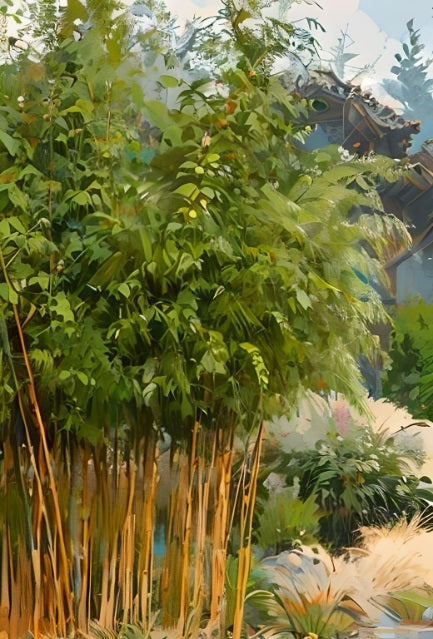
All Bamboo Seeds for Sale
Welcome to our catalog of bamboo plant seeds for sale including clumping...
-
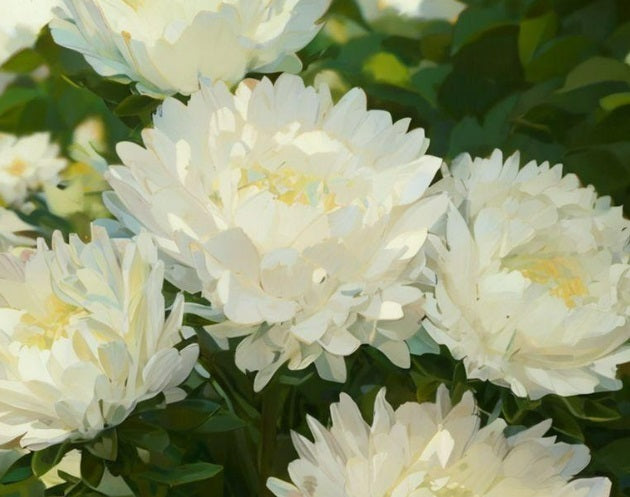
All Flower Seeds
All of our 2025 flower seeds are sold out. Please check back...
-
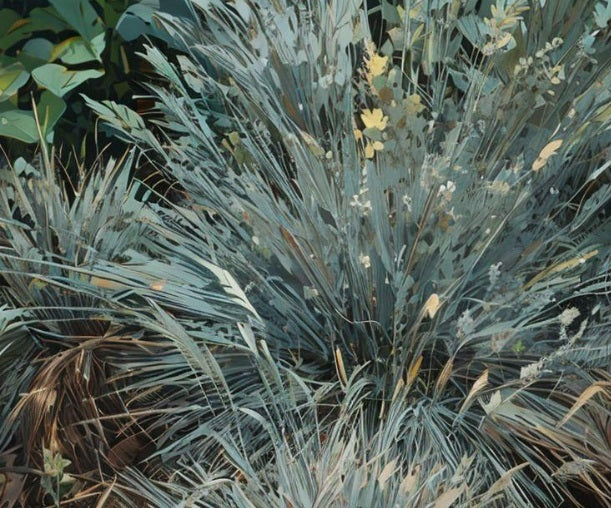
All Ornamental Grass Seeds
Grass has finally come into its own as a garden landscape centerpiece....
-
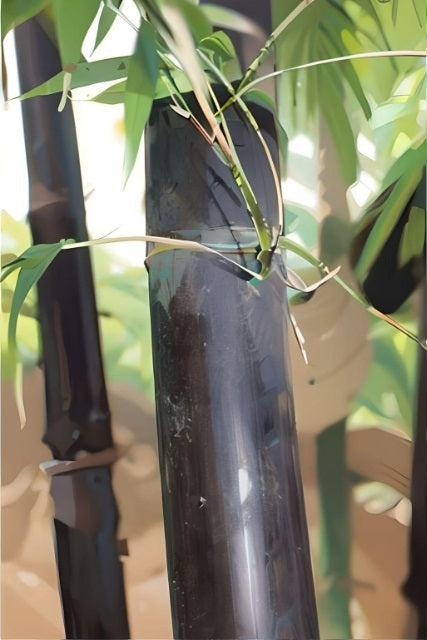
Black Bamboo Seeds
Consider Black Bamboo seeds for eye-catching bamboo varieties with lustrous black, dark...
-
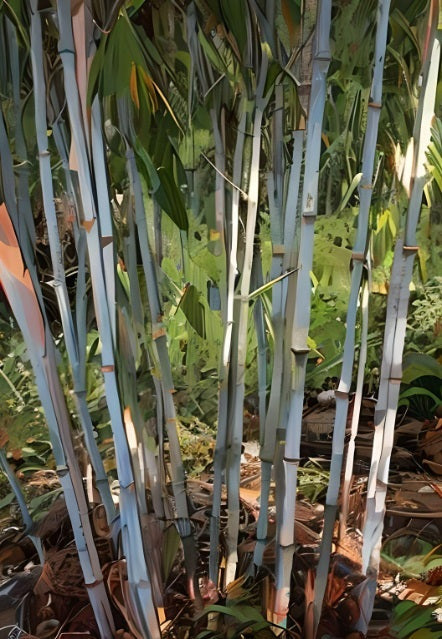
Clumping Bamboo Seeds
Clumping bamboo species grow in dense clumps or clusters that are naturally...
-
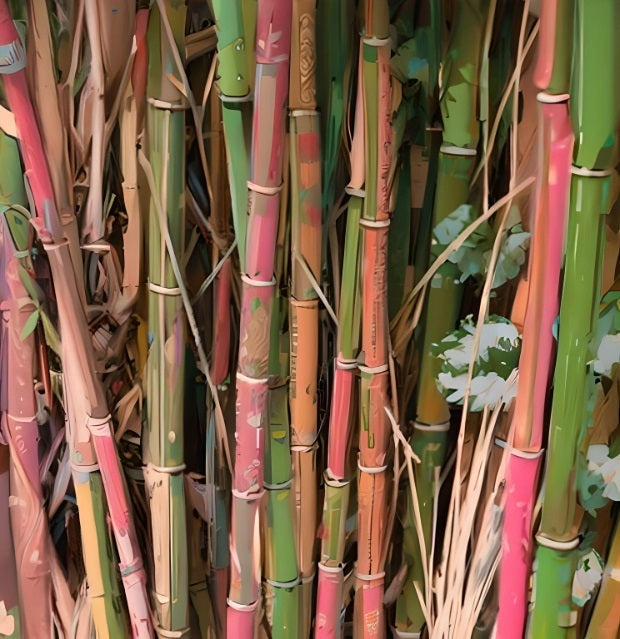
Cold Hardy Bamboo Seeds
A selection of cold resistant bamboo seeds for hardy bamboo able to...
-
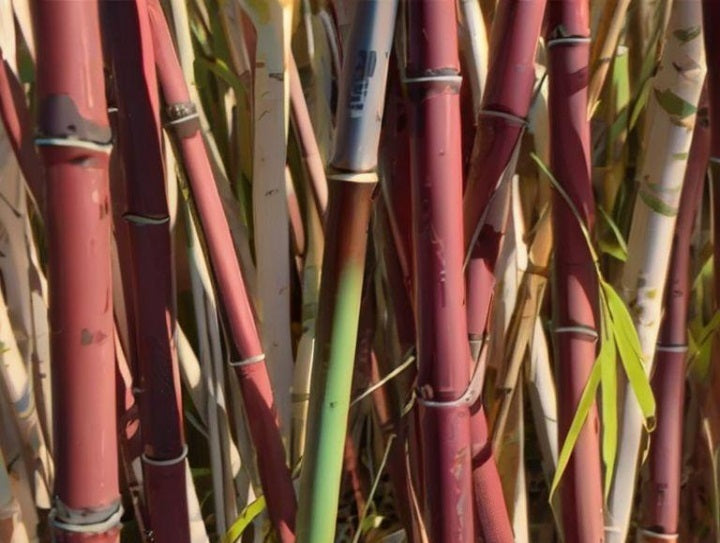
Fargesia Bamboo Seeds - Clumping and Cold Hardy
Buy bamboo seeds for beautiful cold hardy and clumping Fargesia bamboo. Our...
-
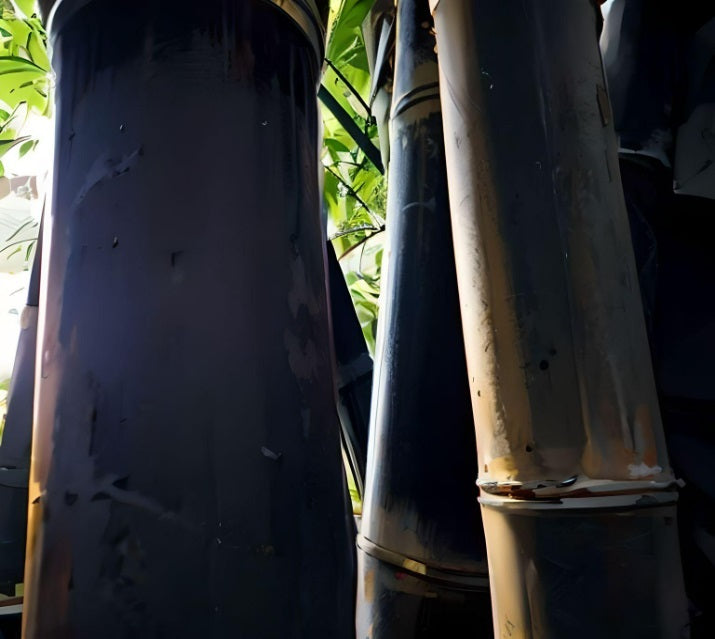
Giant Bamboo Seeds
When you're looking for impressive size with ample shade below, consider fastest...
-
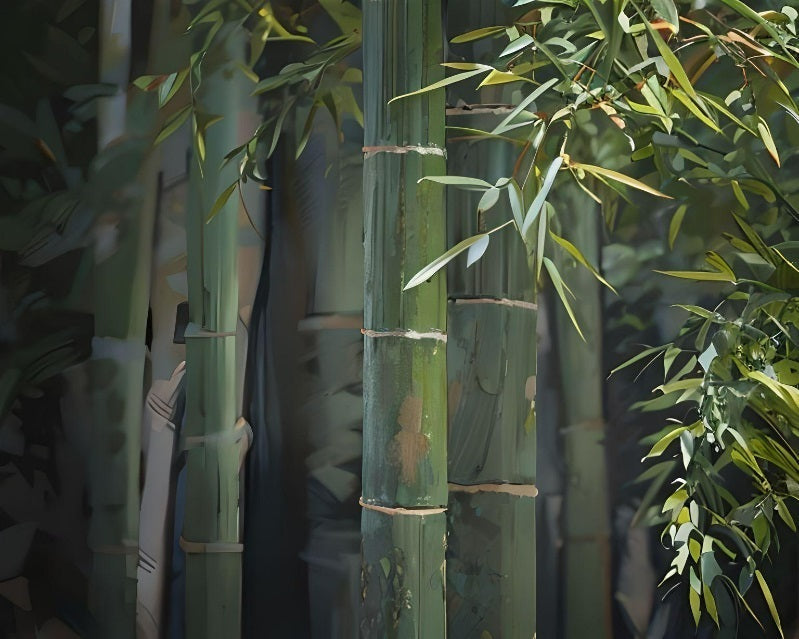
Running Bamboo Seeds
Running bamboo spreads through underground runners, known as rhizomes. These rhizomes can...
-
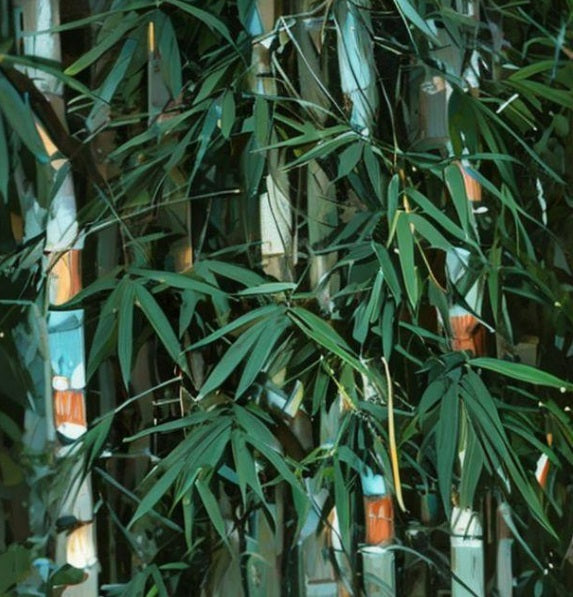
Tropical Bamboo Seeds
Our curated selection of tropical bamboo seeds best suited for planting in...

